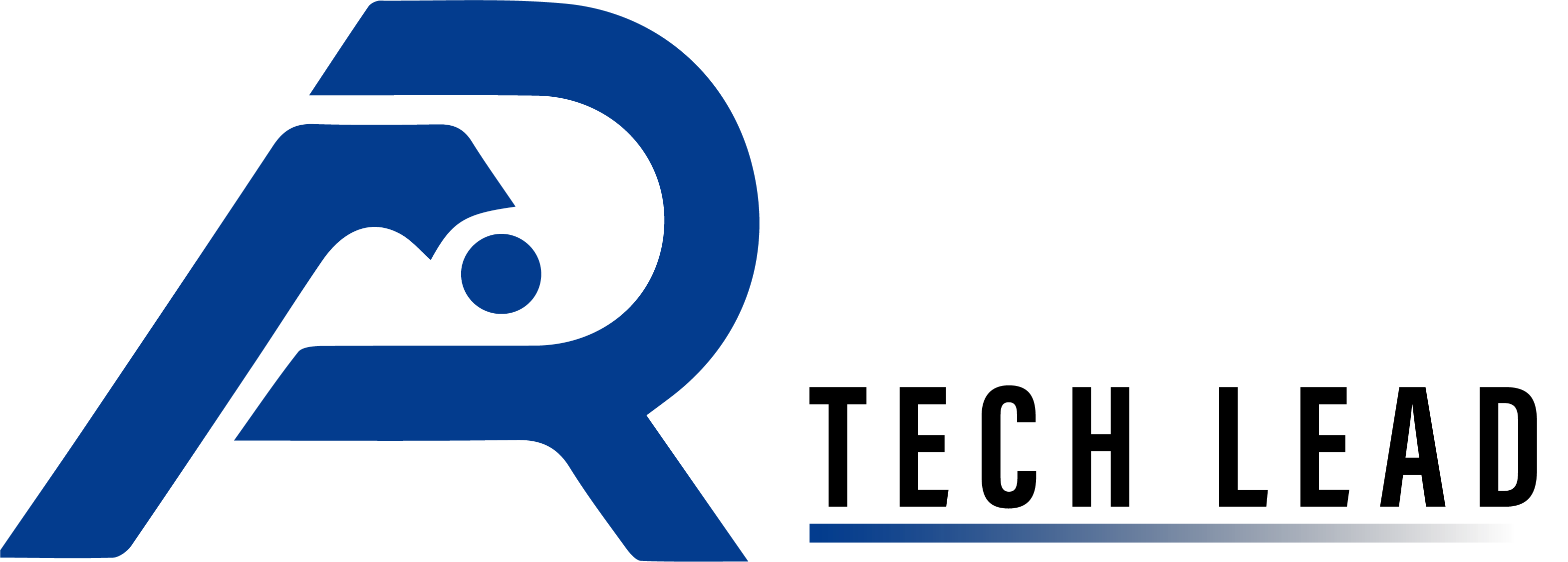21 SEO Tips for Beginners That Will Get Your Site Ranking in 2025
Search Engine Optimization (SEO) is a powerful tool that can help your website rank higher in search engine results, attract more visitors, and grow your online presence. However, for beginners, SEO can seem like a complex and overwhelming process. The good news is that with the right strategies, anyone can master the basics of SEO and start seeing results. In this article, we’ll explore 21 actionable SEO tips for beginners. Whether you’re running a blog, an e-commerce store, or a local business, these tips will help you optimize your website and improve its visibility on search engines like Google.
1. Claim (and Complete) Your Google Business Profile
If you own a local business, one of the first steps you should take is to claim and optimize your Google Business Profile (formerly known as Google My Business). This free tool allows your business to appear in local search results and Google Maps, making it easier for potential customers to find you. To get the most out of your profile, ensure that all your business information is accurate and up-to-date. This includes your business name, address, phone number, website, hours of operation, and categories. Additionally, add high-quality photos of your products, services, or location, and encourage satisfied customers to leave positive reviews. A complete and optimized Google Business Profile can significantly boost your local SEO efforts.
2. Target Long-Tail Keywords vs. Short-Tail Keywords
When it comes to keyword research, beginners often focus on short-tail keywords (e.g., “shoes”), which are highly competitive and difficult to rank for. Instead, prioritize long-tail keywords (e.g., “best running shoes for flat feet”), which are longer, more specific phrases. Long-tail keywords have lower search volume but are less competitive and often have higher conversion rates because they align more closely with user intent. For example, someone searching for “best running shoes for flat feet” is likely closer to making a purchase than someone searching for just “shoes.” Use tools like Google Keyword Planner, Ahref’s, or Ubersuggest to find long-tail keywords that are relevant to your niche.
3. Understand the 3 Different Search Intents
Search intent refers to the reason behind a user’s search query. Understanding search intent is crucial for creating content that meets the needs of your audience. There are three main types of search intent:
Informational: The user is looking for information (e.g., “how to tie a tie”).
Navigational: The user wants to find a specific website or page (e.g., “Facebook login”).
Transactional: The user is ready to make a purchase or take action (e.g., “buy iPhone 15 online”).
By identifying the intent behind the keywords you’re targeting, you can create content that aligns with what users are looking for, which improves your chances of ranking higher in search results.
4. Research Relevant Keywords with the Right Tools
Keyword research is the foundation of any successful SEO strategy. It helps you identify the terms and phrases your target audience is searching for. Use tools like Google Keyword Planner, Ahrefs, SEMrush, or Ubersuggest to find keywords that are relevant to your niche. Look for keywords with a good balance of search volume and low competition. Additionally, analyze the keywords your competitors are ranking for to uncover new opportunities.
5. Choose Core (and Related) Keywords for Every Page
Every page on your website should target a primary keyword and a few related keywords. The primary keyword is the main topic of the page, while related keywords provide additional context and help search engines understand the page’s content. For example, if your primary keyword is “vegan recipes,” related keywords could include “easy vegan dinner ideas” or “healthy vegan snacks.” By targeting a mix of core and related keywords, you can improve your page’s relevance and increase its chances of ranking for multiple search queries.
6. Optimize Your Title Tags and Make Them Spicy
Title tags are one of the most important on-page SEO elements. They appear in search engine results and tell both users and search engines what your page is about. To optimize your title tags, keep them under 60 characters, include your primary keyword, and make them compelling to encourage clicks. For example, instead of a generic title like “Running Shoes,” use something more engaging like “Top 10 Running Shoes for Marathon Training in 2024.”
7. Create Informative and Optimized Meta Descriptions
Meta descriptions are short summaries that appear below the title tag in search results. While they don’t directly impact rankings, they play a crucial role in attracting clicks. Write concise, engaging meta descriptions (under 160 characters) that include your target keyword and a clear call-to-action. For example, “Discover the best running shoes for flat feet. Shop our top picks and enjoy free shipping on orders over $50!”
8. Use Keywords in Headings and Paragraphs
Incorporating keywords naturally into your headings (H1, H2, H3) and throughout your content helps search engines understand the structure and relevance of your page. However, avoid keyword stuffing—overloading your content with keywords can harm your rankings. Instead, focus on creating high-quality, readable content that provides value to your audience.
9. Write for Humans First, Then Search Engines
While SEO is important, your content should always prioritize the reader. Write in a clear, engaging, and conversational tone that resonates with your audience. Use visuals, examples, and storytelling to make your content more relatable and enjoyable to read. Remember, search engines are designed to reward content that satisfies user intent, so focus on creating content that answers your audience’s questions and solves their problems.
10. Optimize Content for Featured Snippets
Featured snippets are the highlighted answers that appear at the top of search results. To optimize your content for featured snippets, structure it with clear answers to common questions, use bullet points, and include concise paragraphs. For example, if you’re writing about “how to bake a cake,” include a step-by-step guide with numbered lists and short, actionable instructions.
11. Go Ahead and Link to Other Sites
Outbound links to authoritative websites can improve your content’s credibility and provide additional value to your readers. For example, if you’re writing about “the benefits of yoga,” you could link to a reputable health website that supports your claims. Just make sure the links are relevant and add value to your content.
12. Develop Longer Content
Long-form content (1,500+ words) tends to perform better in search rankings because it provides in-depth information and covers a topic comprehensively. Focus on creating high-quality, well-researched content that addresses your audience’s needs. For example, instead of writing a short blog post about “SEO tips,” create a detailed guide like “21 SEO Tips for Beginners: A Step-by-Step Guide.”
13. Include Keywords in URLs, but Keep URLs Short
Using your target keyword in the URL helps search engines understand the topic of your page. However, keep your URLs short and descriptive. For example, use “example.com/running-shoes” instead of “example.com/category123/article456.” Short, keyword-rich URLs are easier for users to read and share.
14. Establish a Site Structure Now
A clear site structure helps search engines crawl and index your site efficiently. Use categories, subcategories, and internal linking to organize your content logically. For example, if you run a food blog, you could create categories like “Breakfast Recipes,” “Dinner Ideas,” and “Desserts.” A well-structured site improves user experience and makes it easier for search engines to understand your content.
15. Link Your Site to Google Search Console
Google Search Console is a free tool that helps you monitor your site’s performance in search results. It provides valuable insights into indexing, clicks, impressions, and potential issues like crawl errors or manual penalties. By linking your site to Google Search Console, you can track your SEO progress and make data-driven decisions to improve your rankings.
16. Earn Qualified Backlinks from Reputable Sites
Backlinks from authoritative websites signal to search engines that your content is trustworthy and valuable. Focus on creating high-quality content that others want to link to. You can also reach out to industry influencers or websites and ask them to link to your content. Additionally, guest blogging on reputable sites is a great way to earn backlinks and increase your site’s authority.
17. Find and Research Your Top Competitors
Analyzing your competitors’ websites can provide valuable insights into their SEO strategies. Use tools like Ahrefs or SEMrush to identify their top-performing keywords, backlinks, and content. Look for gaps in their strategies and create content that fills those gaps. For example, if your competitor ranks for “best running shoes” but doesn’t have a guide on “best running shoes for beginners,” you could create a comprehensive guide on that topic.
18. Focus on E-E-A-T in Your Content
E-E-A-T stands for Experience, Expertise, Authoritativeness, and Trustworthiness. Google values content that demonstrates these qualities, especially in YMYL (Your Money or Your Life) niches like health, finance, and legal advice. To improve your E-E-A-T, showcase your credentials, cite reputable sources, and create content that reflects your expertise and authority in your niche.
19. Create Topic Clusters
Topic clusters are a way to organize your content around a central theme. Start by creating a pillar page (a comprehensive guide on a broad topic) and then link it to related subtopics (cluster content). For example, if your pillar page is about “SEO,” your cluster content could include articles like “On-Page SEO Tips for beginners,” “Off-Page SEO Strategies,” and “Technical SEO Basics.” This approach improves your site’s topical authority and helps search engines understand the relationships between your pages.
20. Target “People Also Ask” with FAQ Sections
The “People Also Ask” section in search results is a great source of content ideas. Create FAQ sections on your pages to answer common questions and increase your chances of appearing in these snippets. For example, if you’re writing about “email marketing,” include questions like “What is email marketing?” and “How does email marketing work?”
21. Create a Schedule for Updating Content and Preventing Decay
SEO is an ongoing process, and content can lose its relevance over time. To prevent content decay, create a schedule to review and update your older posts. Add new information, refresh statistics, and improve the overall quality of your content. Regularly updating your content not only helps maintain its rankings but also ensures that it continues to provide value to your audience.






Final Thoughts
SEO is a long-term investment that requires patience, consistency, and continuous learning. By implementing these 21 tips, you’ll be well on your way to improving your website’s search engine rankings and driving more organic traffic. Remember, SEO is not a one-time task—it’s an ongoing process that evolves with changes in search engine algorithms and user behavior. Stay committed, keep experimenting, and don’t be afraid to adapt your strategies as you go. With time and effort, you’ll see the results of your hard work and enjoy the benefits of a well-optimized website. Happy optimizing!
Author








Isabelle
March 26, 2025Comment:
Hello,
Thank you for sharing this insightful article
on SEO tips for beginners. As someone who is
just starting to learn about SEO, I found your tips extremely helpful and practical.
In particular, I appreciate your emphasis on understanding search intent, targeting long-tail keywords,
and optimizing title tags and meta descriptions.
I also found your advice on creating topic clusters and targeting “People Also Ask” with FAQ
sections to be very innovative and effective.
One tip that stood out to me was focusing on E-E-A-T in content.
I believe that creating content that demonstrates experience, expertise, authoritativeness, and
trustworthiness is essential for building credibility and authority in any
niche. I will definitely keep this in mind as I create content for my website.
Overall, I learned a lot from your article, and I look forward to implementing your tips to improve my website’s search engine
rankings. Thank you again for sharing your knowledge and expertise.
Best regards,
Isabelle
Also visit my website; virtualnetia
SEO in 2025: Trends, Priorities, and Challenges - artechlead.com
April 8, 2025[…] SEO used to be about pleasing bots. Now, it’s about delighting users. If your page loads slowly, has confusing navigation, or feels “meh,” users bounce—and rankings tank. […]
Boost Your Profits: A Guide to Measuring Website ROI! - artechlead.com
April 24, 2025[…] Content creation – Blog posts, product pages, media, and SEO optimization. […]
Explore SEO Audit Service for Long Term Growth
May 6, 2025[…] Bloggers looking to increase organic reach […]
The Ultimate Guide to Answer Engine Optimization: Dominate AI-Powered Search Results - artechlead.com
May 26, 2025[…] with SEO best practices: Optimize for keywords, meta tags, page speed, and […]